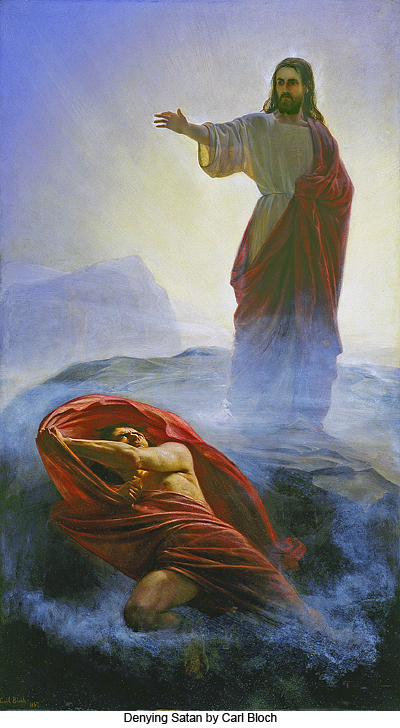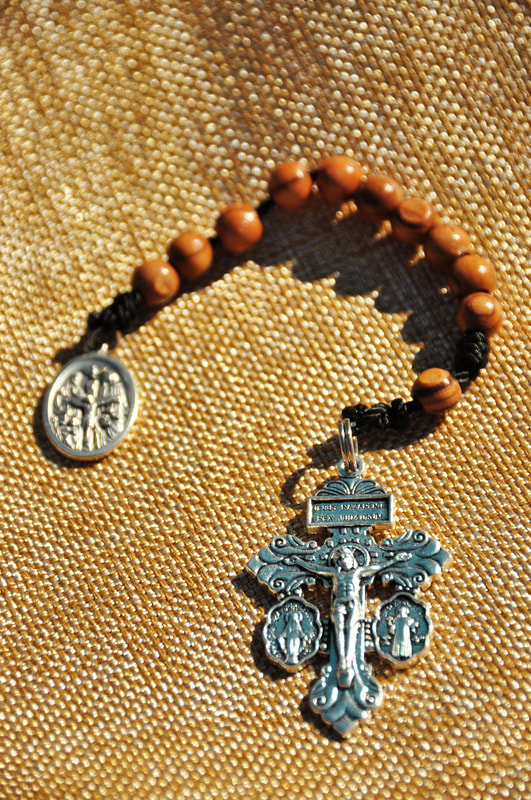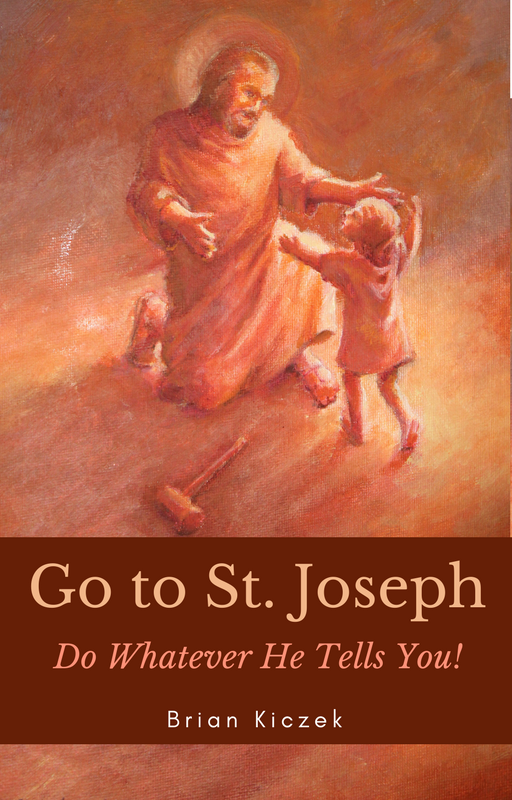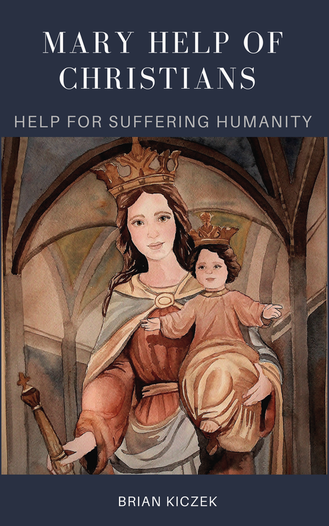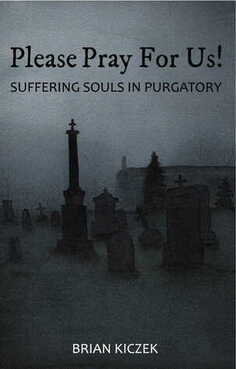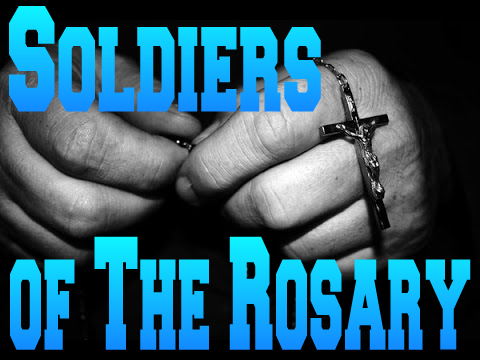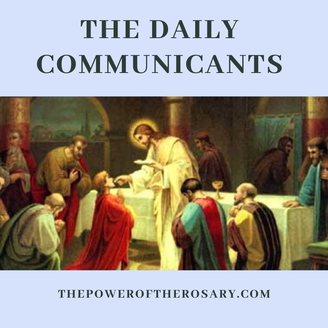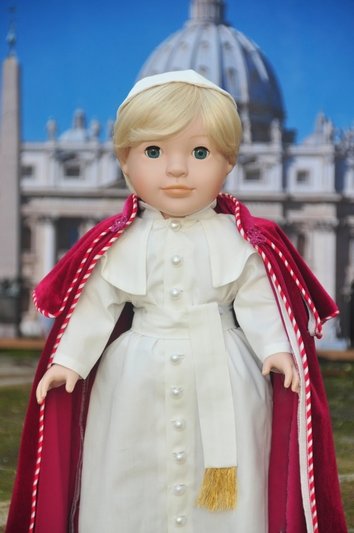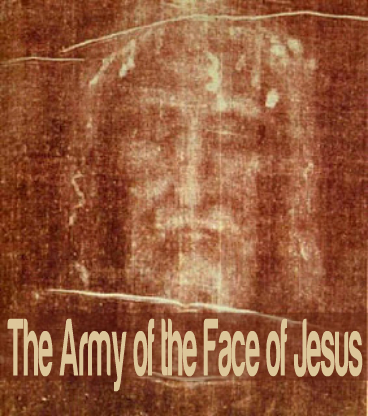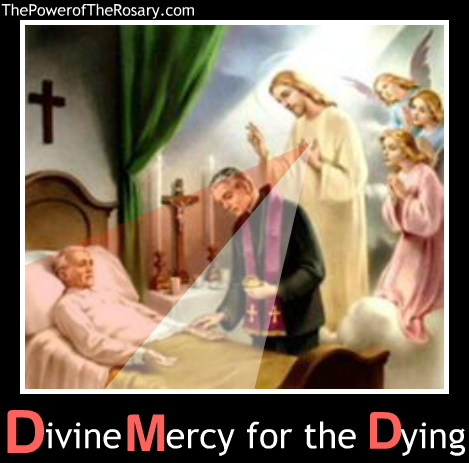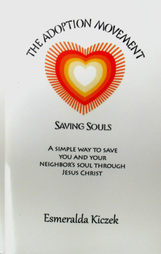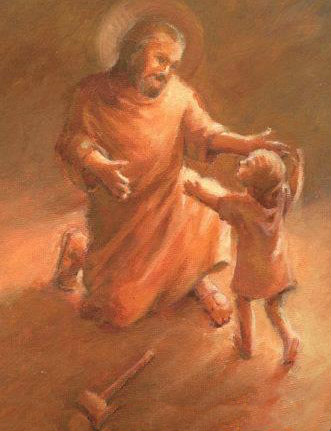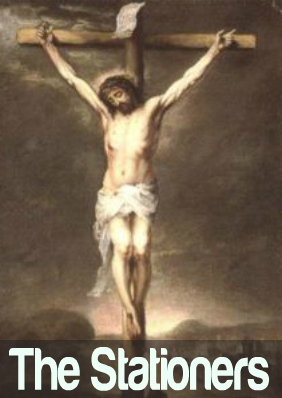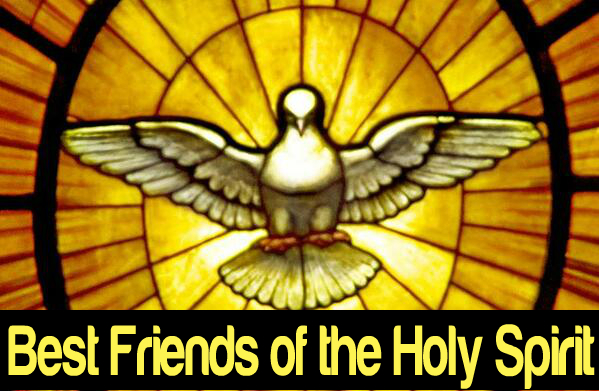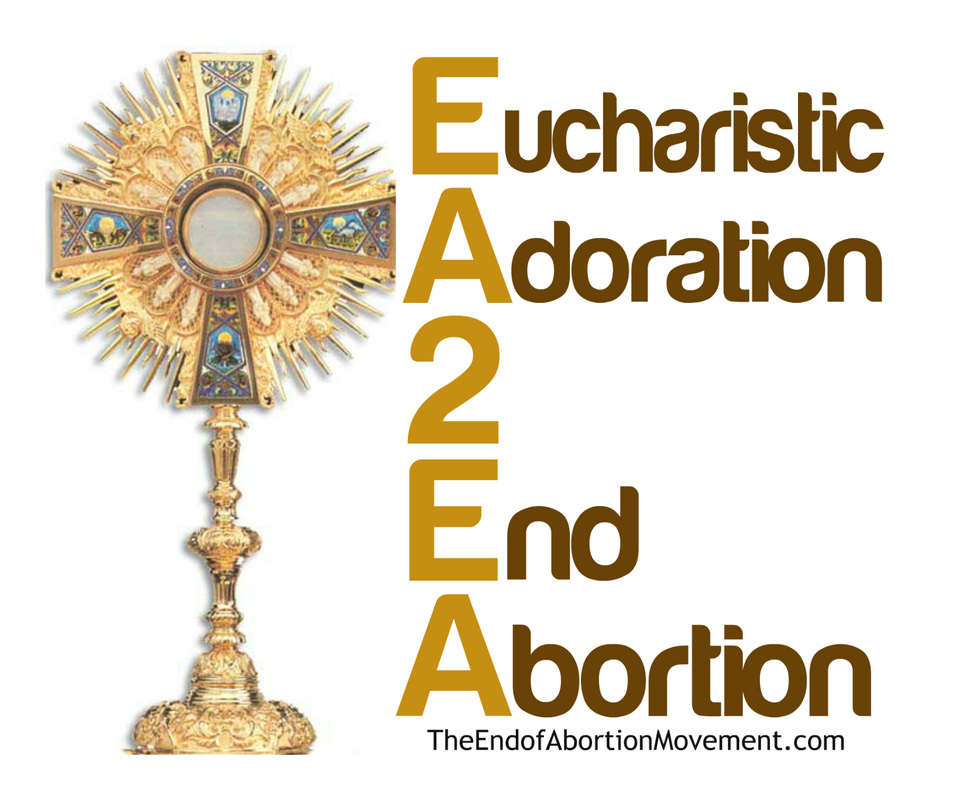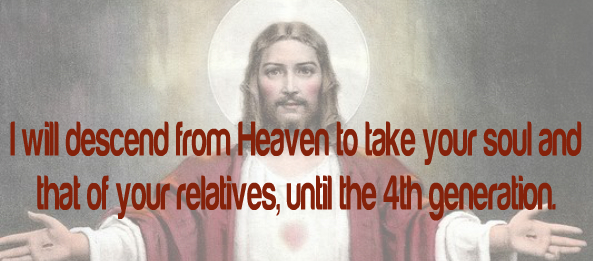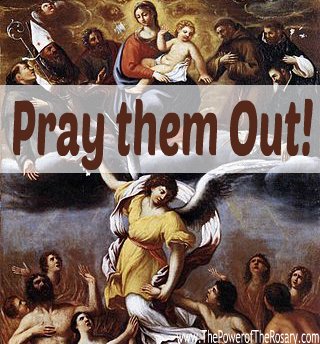The Power of Fasting and Sacrifice
Next day of the"Fasting is better than prayer." (Saint Clement)
The Church teaches us, in no uncertain terms, that fasting is the highest external penance that anyone can perform, and thus should be preferred above all others. In fact, the Church even goes so far as to indicate that those who do not fast--whose bellies are continually satiated--are incapable of prayer! Indeed, there is a good reason why we as Christians often hear the words "prayer and fasting" together.
In the Catechism of the Council of Trent we read, that “Fasting is most intimately connected with prayer. For the mind of one who is filled with food and drink is so borne down as not to be able to raise itself to the contemplation of God, or even to understand what prayer means."
In the Book of Esther Chapter 4, verse 16 Esther said, "Go, assemble all the Jews…and fast for me; do not eat or drink for three days, night or day. I and my maidens also will fast in the same way. And thus I will go in to the king." At this moment in history, The Jews were on the brink of total annihilation. Yet Esther the queen was able to successfully win the king’s favor and save the Jews from extinction. And all this was initiated by three days of fasting.
In Genesis chapter 25 verse 34: Esau said to Jacob “Please let me have that red pottage, for I am famished.”...But Jacob said, “First sell me your birthright.” Esau said, “I am about to die; of what use then is the birthright to me?”...Then Jacob gave Esau bread and lentil stew...and thus Esau sold his birthright." Esau traded his place as firstborn (and thus his life's inheritance) for a bowl of lentils! Is this not the mindset of today's society? We devote more time and thought to our next meal, than we do to the law of God.
In Mark chapter 9 verse 29 Jesus said "But this kind [of demon] can be cast out in no other way except by prayer and fasting." Just as in the Old Testament, prayer must be joined with fasting in order to have greater efficacy before God.
In Matthew chapter 4 verse 1 "Then Jesus was led up by the Spirit into the wilderness...And after He had fasted forty days and forty nights..."
Here we see Jesus, through prayer and fasting, prepared Himself for the mission that lay before Him, marked at the start by a serious battle with the tempter."
St Francis De Sales said, ”I assert that whoever is attached to the pleasures of the table, or does not seriously attend to the mortification of the appetite, will never make any considerable progress in perfection. those who neglect the mortification of the taste will daily commit a thousand faults."
Saint Teresa of Avila said; "Our human nature often asks for more than what it needs, and sometimes the devil helps so as to cause fear about the practice of penance and fasting...My health has been much better since I have ceased to look after my ease and comforts."
Saint Alphonsus De Ligouri said, "If bodily weakness renders us unable to practice corporal austerities, let us at least...embrace with joy the infirmities with which Almighty God visits us. If borne with patience, they will conduct us to perfection better than voluntary works of penance. "Oh! how often is bodily weakness made the pretext for unnecessary indulgence."
He also said, "If, on account of bodily infirmity, or through want of fervor you do not practice rigid fasts, you should at least not complain of the common fare; and should be content with whatever is brought to table. St. Thomas never asked for particular food, but was always satisfied with what was placed before him, and ate of it with great moderation. Of St. Ignatius we read that he never refused any dish, and never complained that the food was not well dressed or well seasoned.”
Saint Alphonsus reminds us; "Some religious fast one day, and eat to excess on the next. St. Jerome says that it is better to take always a reasonable quantity of food than to fast sometimes, and afterwards to commit excess".
Saint Peter Chrysologus said, "Fasting is the soul of prayer; mercy is the lifeblood of fasting. So, if you pray, fast; if you fast, show mercy. If you want your petition to be heard, hear the petition of others. If you do not close your ear to others, you open God’s ear to yourself."
Saint John Chrysostom said, "Fasting of the body is food for the soul." - "As bodily food fattens the body, so fasting strengthens the soul. Imparting it an easy flight, it makes it able to ascend on high, to contemplate lofty things, and to put the heavenly higher than the pleasant and pleasurable things of life."
Our Pope Benedict XVI said in the Great Joy of Fasting, “Through fasting and praying, we allow Him to come and satisfy the deepest hunger that we experience in the depths of our being: the hunger and thirst for God. “
St. John Chrysostom said, “Fasting is wonderful, because it tramples our sins like a dirty weed, while it cultivates and raises truth like a flower.”
Extracted from this wonderful website:
http://www.religious-vocation.com/fasting_religious_renewal.html
I recommend you fast if you can without major health deficiencies at least once a week form 6am-1pm. I also recommend fasting for your wife or girlfriend by joining e5 Men here: www.e5men.org
and excellent website to teach the power of fasting. I have fasted for my wife over five years and she has come much closer to the Lord I believe through the power of fasting. Fasting is powerful!
Keep up the Great Work using the Power of Fasting and Sacrifice!
Next day of the Four Men Boot Camp:
http://www.thefourmen.info/2/post/2012/01/the-thirty-first-day-of-the-four-men-boot-camp.html
Not yet in the God's Marines Boot Camp?
Rise up today to join the True Brotherhood of the Four Men Prayer Groups:
www.thefourmen.info/join-the-true-brotherhood.html
The Church teaches us, in no uncertain terms, that fasting is the highest external penance that anyone can perform, and thus should be preferred above all others. In fact, the Church even goes so far as to indicate that those who do not fast--whose bellies are continually satiated--are incapable of prayer! Indeed, there is a good reason why we as Christians often hear the words "prayer and fasting" together.
In the Catechism of the Council of Trent we read, that “Fasting is most intimately connected with prayer. For the mind of one who is filled with food and drink is so borne down as not to be able to raise itself to the contemplation of God, or even to understand what prayer means."
In the Book of Esther Chapter 4, verse 16 Esther said, "Go, assemble all the Jews…and fast for me; do not eat or drink for three days, night or day. I and my maidens also will fast in the same way. And thus I will go in to the king." At this moment in history, The Jews were on the brink of total annihilation. Yet Esther the queen was able to successfully win the king’s favor and save the Jews from extinction. And all this was initiated by three days of fasting.
In Genesis chapter 25 verse 34: Esau said to Jacob “Please let me have that red pottage, for I am famished.”...But Jacob said, “First sell me your birthright.” Esau said, “I am about to die; of what use then is the birthright to me?”...Then Jacob gave Esau bread and lentil stew...and thus Esau sold his birthright." Esau traded his place as firstborn (and thus his life's inheritance) for a bowl of lentils! Is this not the mindset of today's society? We devote more time and thought to our next meal, than we do to the law of God.
In Mark chapter 9 verse 29 Jesus said "But this kind [of demon] can be cast out in no other way except by prayer and fasting." Just as in the Old Testament, prayer must be joined with fasting in order to have greater efficacy before God.
In Matthew chapter 4 verse 1 "Then Jesus was led up by the Spirit into the wilderness...And after He had fasted forty days and forty nights..."
Here we see Jesus, through prayer and fasting, prepared Himself for the mission that lay before Him, marked at the start by a serious battle with the tempter."
St Francis De Sales said, ”I assert that whoever is attached to the pleasures of the table, or does not seriously attend to the mortification of the appetite, will never make any considerable progress in perfection. those who neglect the mortification of the taste will daily commit a thousand faults."
Saint Teresa of Avila said; "Our human nature often asks for more than what it needs, and sometimes the devil helps so as to cause fear about the practice of penance and fasting...My health has been much better since I have ceased to look after my ease and comforts."
Saint Alphonsus De Ligouri said, "If bodily weakness renders us unable to practice corporal austerities, let us at least...embrace with joy the infirmities with which Almighty God visits us. If borne with patience, they will conduct us to perfection better than voluntary works of penance. "Oh! how often is bodily weakness made the pretext for unnecessary indulgence."
He also said, "If, on account of bodily infirmity, or through want of fervor you do not practice rigid fasts, you should at least not complain of the common fare; and should be content with whatever is brought to table. St. Thomas never asked for particular food, but was always satisfied with what was placed before him, and ate of it with great moderation. Of St. Ignatius we read that he never refused any dish, and never complained that the food was not well dressed or well seasoned.”
Saint Alphonsus reminds us; "Some religious fast one day, and eat to excess on the next. St. Jerome says that it is better to take always a reasonable quantity of food than to fast sometimes, and afterwards to commit excess".
Saint Peter Chrysologus said, "Fasting is the soul of prayer; mercy is the lifeblood of fasting. So, if you pray, fast; if you fast, show mercy. If you want your petition to be heard, hear the petition of others. If you do not close your ear to others, you open God’s ear to yourself."
Saint John Chrysostom said, "Fasting of the body is food for the soul." - "As bodily food fattens the body, so fasting strengthens the soul. Imparting it an easy flight, it makes it able to ascend on high, to contemplate lofty things, and to put the heavenly higher than the pleasant and pleasurable things of life."
Our Pope Benedict XVI said in the Great Joy of Fasting, “Through fasting and praying, we allow Him to come and satisfy the deepest hunger that we experience in the depths of our being: the hunger and thirst for God. “
St. John Chrysostom said, “Fasting is wonderful, because it tramples our sins like a dirty weed, while it cultivates and raises truth like a flower.”
Extracted from this wonderful website:
http://www.religious-vocation.com/fasting_religious_renewal.html
I recommend you fast if you can without major health deficiencies at least once a week form 6am-1pm. I also recommend fasting for your wife or girlfriend by joining e5 Men here: www.e5men.org
and excellent website to teach the power of fasting. I have fasted for my wife over five years and she has come much closer to the Lord I believe through the power of fasting. Fasting is powerful!
Keep up the Great Work using the Power of Fasting and Sacrifice!
Next day of the Four Men Boot Camp:
http://www.thefourmen.info/2/post/2012/01/the-thirty-first-day-of-the-four-men-boot-camp.html
Not yet in the God's Marines Boot Camp?
Rise up today to join the True Brotherhood of the Four Men Prayer Groups:
www.thefourmen.info/join-the-true-brotherhood.html

